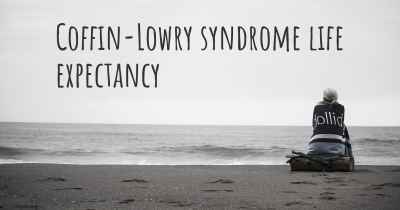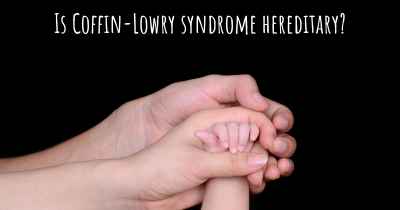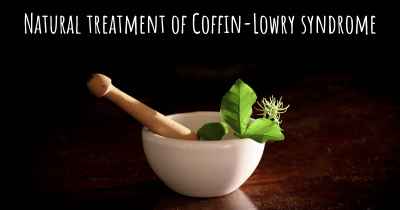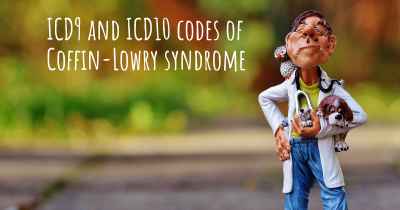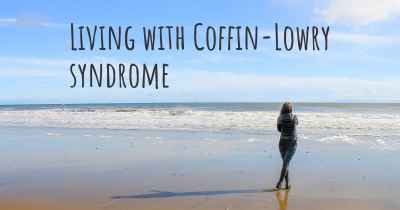Which advice would you give to someone who has just been diagnosed with Coffin-Lowry syndrome?
See some advice from people with experience in Coffin-Lowry syndrome to people who have just been diagnosed with Coffin-Lowry syndrome
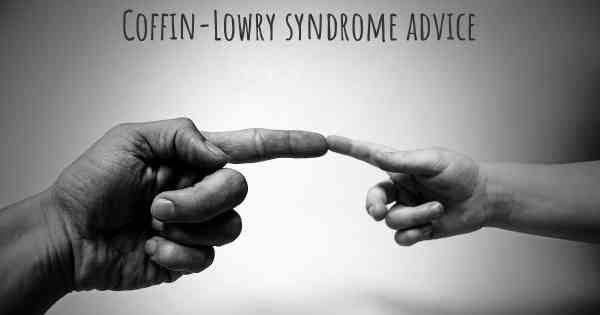
Congratulations on taking the first step towards understanding your diagnosis of Coffin-Lowry syndrome! It's completely normal to feel a mix of emotions right now, including confusion, fear, and uncertainty. However, please remember that you are not alone in this journey. There is a supportive community of individuals, families, and healthcare professionals who are here to help you navigate through the challenges and embrace the opportunities that lie ahead.
Educate yourself about Coffin-Lowry syndrome: Knowledge is power, and understanding the condition is crucial in managing it effectively. Take the time to learn about the syndrome, its symptoms, causes, and potential complications. Familiarize yourself with the available resources, such as reputable websites, books, and support groups, that can provide you with accurate and up-to-date information. This will empower you to make informed decisions about your health and well-being.
Build a healthcare team: Establishing a strong support network is essential. Seek out healthcare professionals who specialize in Coffin-Lowry syndrome or related genetic conditions. They will have the expertise and experience to guide you through the medical aspects of the syndrome. Additionally, consider consulting with specialists in areas such as neurology, cardiology, orthopedics, and speech therapy, depending on your specific needs. Collaborating with a team of professionals will ensure comprehensive care and address any potential complications.
Connect with support groups: Connecting with others who have Coffin-Lowry syndrome or are caring for someone with the condition can be immensely beneficial. Support groups provide a safe space to share experiences, exchange advice, and find emotional support. Online communities, social media groups, and local organizations can help you connect with individuals who understand the challenges you may face. Remember, you are not alone, and there are people who can offer guidance and empathy.
Focus on self-care: Taking care of your physical and emotional well-being is crucial. Make sure to prioritize self-care activities that bring you joy and relaxation. Engage in hobbies, exercise regularly, eat a balanced diet, and get enough sleep. Managing stress is particularly important, as it can impact your overall health. Consider exploring stress-reducing techniques such as meditation, deep breathing exercises, or engaging in activities that help you unwind.
Advocate for yourself: As you navigate the healthcare system, remember that you are your own best advocate. Be proactive in seeking appropriate medical care, accessing necessary resources, and ensuring your voice is heard. Ask questions, express your concerns, and actively participate in your treatment plan. Remember, you are an expert on your own experience, and your input is valuable in shaping your care.
Take it one step at a time: Coping with a new diagnosis can be overwhelming, but it's important to remember that you don't have to tackle everything at once. Take it one step at a time, focusing on what you can control in the present moment. Celebrate small victories and be patient with yourself. Remember that progress may come in different forms and at different paces for each individual. Embrace the journey and be open to learning and growing along the way.
Seek emotional support: Dealing with a diagnosis of Coffin-Lowry syndrome can be emotionally challenging. It's normal to experience a range of emotions, including sadness, anger, and grief. Consider seeking professional counseling or therapy to help you process these emotions and develop coping strategies. Additionally, lean on your support network of family and friends who can provide a listening ear and offer comfort during difficult times.
Stay positive and embrace your uniqueness: Remember that a diagnosis does not define you. You are a unique individual with strengths, talents, and potential. Focus on your abilities and celebrate your achievements, no matter how small they may seem. Surround yourself with positivity and strive to create a fulfilling life despite the challenges you may face. With the right support and mindset, you can overcome obstacles and lead a meaningful and joyful life.
Conclusion: Being diagnosed with Coffin-Lowry syndrome may feel overwhelming, but with the right knowledge, support, and mindset, you can navigate this journey successfully. Educate yourself, build a healthcare team, connect with support groups, prioritize self-care, advocate for yourself, take it one step at a time, seek emotional support, and embrace your uniqueness. Remember, you are not alone, and there is a community ready to support you every step of the way.
